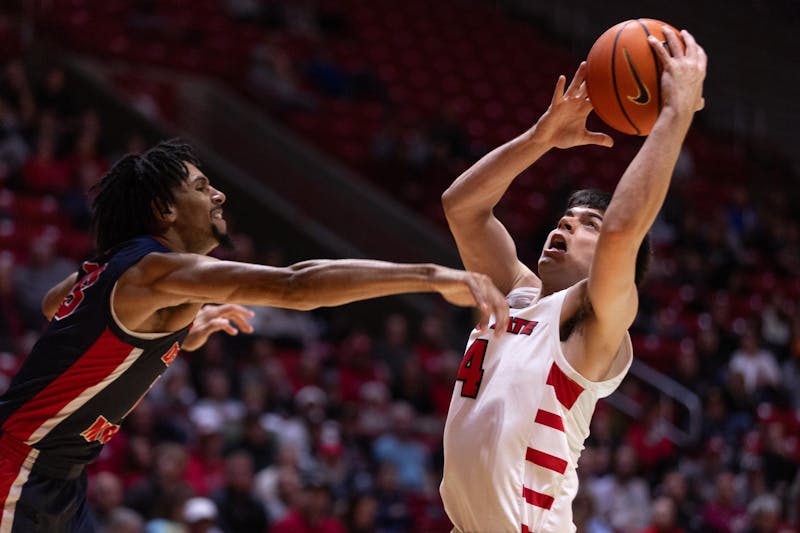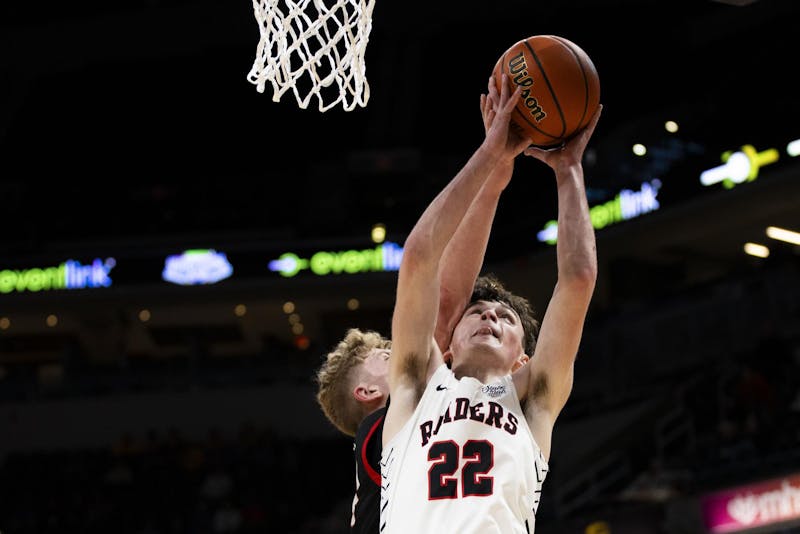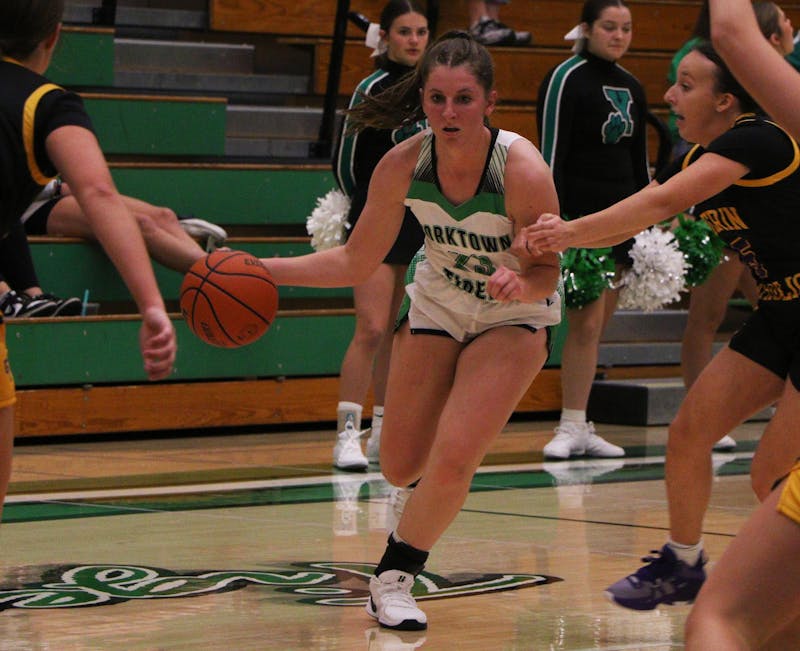As far as upsets are concerned, 2018 may go down as one of the most memorable first weekend's in March Madness history.
In the first two rounds, there have been a total of 11 upsets — with an "upset" being defined as a team at least two seeds lower beating a higher ranked team — which is on par with average total seen on a given year. Note: The reasoning for the scaling system is to disregard common games like 8/9 matchups in the First Round or common 1/2 battles later in the tournament.
According to research gathered by staffers with NCAA's website, there have been, on average, 12.7 upsets that occur in any given tournament since the field expanded in 1985. Utilizing this data, by the end of the second round, there's an expectation that around 10 upsets will have occurred. This year, there's been 11 and it's on pace to be even more, with each game outside of No. 3 Texas Tech and No. 2 Purdue having upset possibility in the Sweet 16.
By the end of this year's first round, the total number sat at six, no more or no less than usual years. The round of 32 is where some of the bigger underdogs showed out, however, with five well-liked teams dropping out of the tournament.
There have not only been more upsets this year, but they're bigger than usual. After just one weekend, six of the top-12 seeded teams in the tournament were eliminated, leaving just two of each of the No. 1, 2 and 3 seeds alive going into the second weekend. In the South region, all of the top four seeds have been eliminated after two rounds — something that has never happened in the tournament.
Looking at the numbers, just in the round of 32, there were five other games that could've ended in an upset, with four of them being decided by four points or less. Leading some writers like Hall of Fame basketball writer, Mike Lopresti, to say:
"Whew. Are the upsets finally over — for a few days, anyway?" Lopresti wrote in a NCAA article. "This baffling, chaotic, incomprehensible what's-next? NCAA Tournament — now advances to the rounds with numbers for names. Sweet 16, Elite Eight, Final Four."
But before the tournament continues on Thursday night, let's look back at the madness that ensued in just four days broken down by each seed.
No. 1-seed is safe
In the past 35 years of the tournament, No. 1 seeds have lost just 17 times in the round of 32 and never in the first round — both of those things happened this year.
Overall No. 1 Virginia lost by an insurmountable 20 points to No. 16 UMBC. To put that into perspective, it marked the first time a 16-seed won in 136 attempts against 1-seeds in March.
No. 1 Xavier also fell by five points to No. 9 Florida State, but this kind of upset is more commonplace. A No. 8 or 9 seed upsets a No. 1 seed once every other year on average. Kansas also almost fell in the round of 32, past Seton Hall by just four points.
No. 2s are vulnerable
On average, No. 2 seeds fall at least once every year in the round of 32, which makes this year less than commonplace.
While two 2-seeds are already gone, it could have easily been three with Purdue, playing without big man Isaac Haas, holding on to win by three against in-state rival Butler.
The same can't be said about the defending champion North Carolina, who lost by 21-points against Texas A&M, or Cincinnati, who couldn't hang on in a two-point loss to Nevada. Like the 1-seeds, only one 2-seed comfortably moved on and that's Duke, whose won its first two games by an average of 23.5 points.
Too close to call for No. 3-seeds
In the round of 32, each of the games a No. 3 seed played in was decided by three points or less.
Both Loyola-Chicago and Syracuse — a pair of 11-seeds — advanced to the Sweet 16 after beating Tennessee and Michigan State, respectively. No. 3 Texas Tech pulled away to beat Florida by three-points. Michigan was moments away from being eliminated until freshman guard, Jordan Poole, hit a buzzer-beating shot to give the Wolverines the victory over No. 6 Houston.
No. 4-seeds getting shown up
The 4/13 upset is one that doesn't happen often, occurring just 26 times in 35 years, but that wouldn't seem like the case looking at this tournament.
In the first round, Mid-American Conference university Buffalo blew-out Arizona, a team favored to make deep tournament runs by many experts and Marshall upset Wichita State in the East Region.
Not only that, but the University of North Carolina at Greensboro and Charleston, the other 13-seeds, lost by just four points a piece to Gonzaga and Auburn in the first round. The only No. 4 seed that remains in the tournament is Gonzaga.
No. 5-seeds figuring it out
Every year, the most enticing matchup is the 5/12 games. Nearly 36 percent of the time a No. 12 seed finds a way to pull out a win in the first round.
This year, however, each 5-seed moved onto the round of 32, with each handling their games, and three of them — Kentucky, West Virginia and Clemson — standing strong to advance to the Sweet 16.
Bye-bye No. 6-seeds
To make up for the lack of upsets in the 5/12 games, 11-seeds Loyola-Chicago and Syracuse took care of business to advance to the Sweet 16.
After a last-second stunner over No. 6 Miami, the Ramblers of Loyola-Chicago continued their historic run, beating No. 3 Tennessee by a single point. In the Midwest region, No. 11 Syracuse, which started off as a First Four team, won its third straight tournament game, knocking off No. 6 Texas Christian University and No. 3 Michigan State, in the process.
As for the other 6-seeds Florida and Houston, each of their tournament runs came to an end in the final minutes, with Houston's journey ending on a last-second 3-pointer.
No. 7-seeds remain strong
Two 7-seeds are also among the unusually high-seeded field moving into the Sweet 16.
After close first round victories against Texas and Providence, both Nevada and Texas A&M knocked off the No. 2 seeds to advance deeper in the tournament. In the Midwest region, the University of Rhode Island lost by 25 points to Duke and No. 7 Arkansas lost by 17 to Butler in the first round.
This tournament has already been one to remember but with seven potential upsets on the line in the second weekend, it has the potential to have the most total upsets ever in the NCAA Tournament. The previous record, based off the definition at the beginning of the article, is 19 — a feat that happened back in 2014.
Contact Robby General at rjgeneral@bsu.edu or on Twitter @rgeneraljr.





The Daily News welcomes thoughtful discussion on all of our stories, but please keep comments civil and on-topic. Read our full guidelines here.